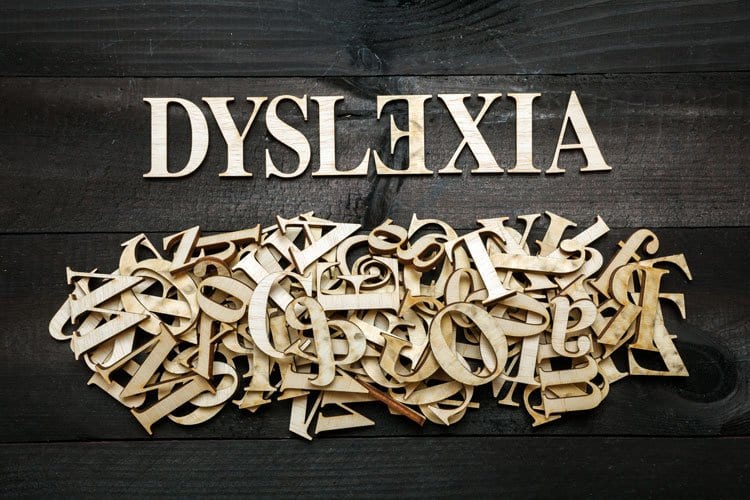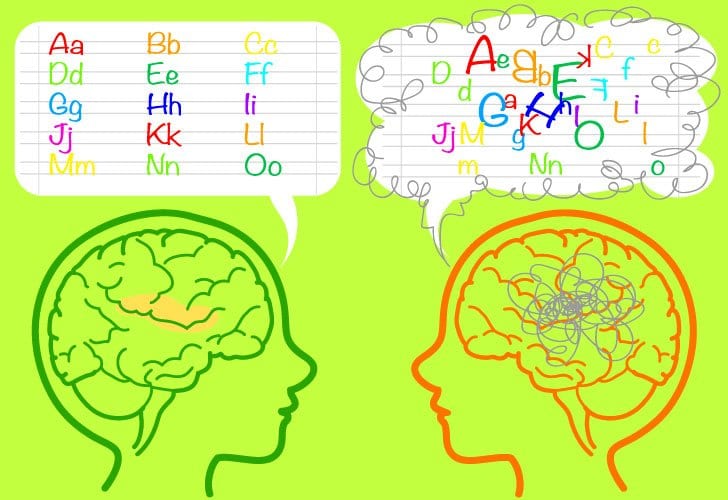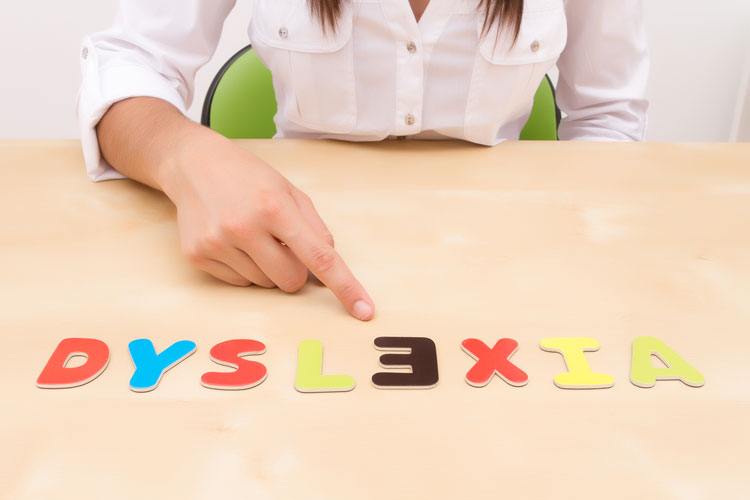What is Dyslexia?
Dyslexia is a language processing disorder which makes learning to read, spell, and write difficult for children, teenagers, and adults. Dyslexia is genetic, so it is runs in families.
To learn more about dyslexia, click here:
40% of children with dyslexia also have AD/HD.
What is Phonemic Awareness?
Phonemic awareness is the ability to recognize individual sounds (phonemes) in spoken language. National institutes of Health (NIH) research has proven repeatedly that a weakness in phonemic awareness predicts reading failure.
Use this list to check for weaknesses in the following areas of phonemic awareness.
- Isolating sounds: What individual sounds do you hear in mop ? What is the first sound ? The last sound ?
- Substituting sounds: What word do you get if you change the first sound in mop to / t / ? Or change the last sound of top to / m / ?
- Matching sounds: Do met and mouse begin with the same sound ?
- Counting sounds: How many sounds do you hear in cup ? at ? top ?
- Deleting sounds: Say tan without the / t /. What word would you get?
- Blending sounds: Blend these sounds / b / / a / / t /. What word do you get ?
- Rhyming words: How many words can you think of that rhyme with sat ? call ?
What is the Screening Procedure?
Before screening, the dyslexia specialist will consult with the parents of a child or an adult seeking screening to review development, genetic, and educational history. Since no one screening sample can diagnose dyslexia, a screening battery is given to assess the following areas:
- Auditory Processing Skills
- Memory (visual & auditory)
- Reading Words in Isolation
- Reading Fluency
- Spelling
- Dysgraphia
- Written Expression.
Click to view a great source about screening information and who should screen for dyslexia.





